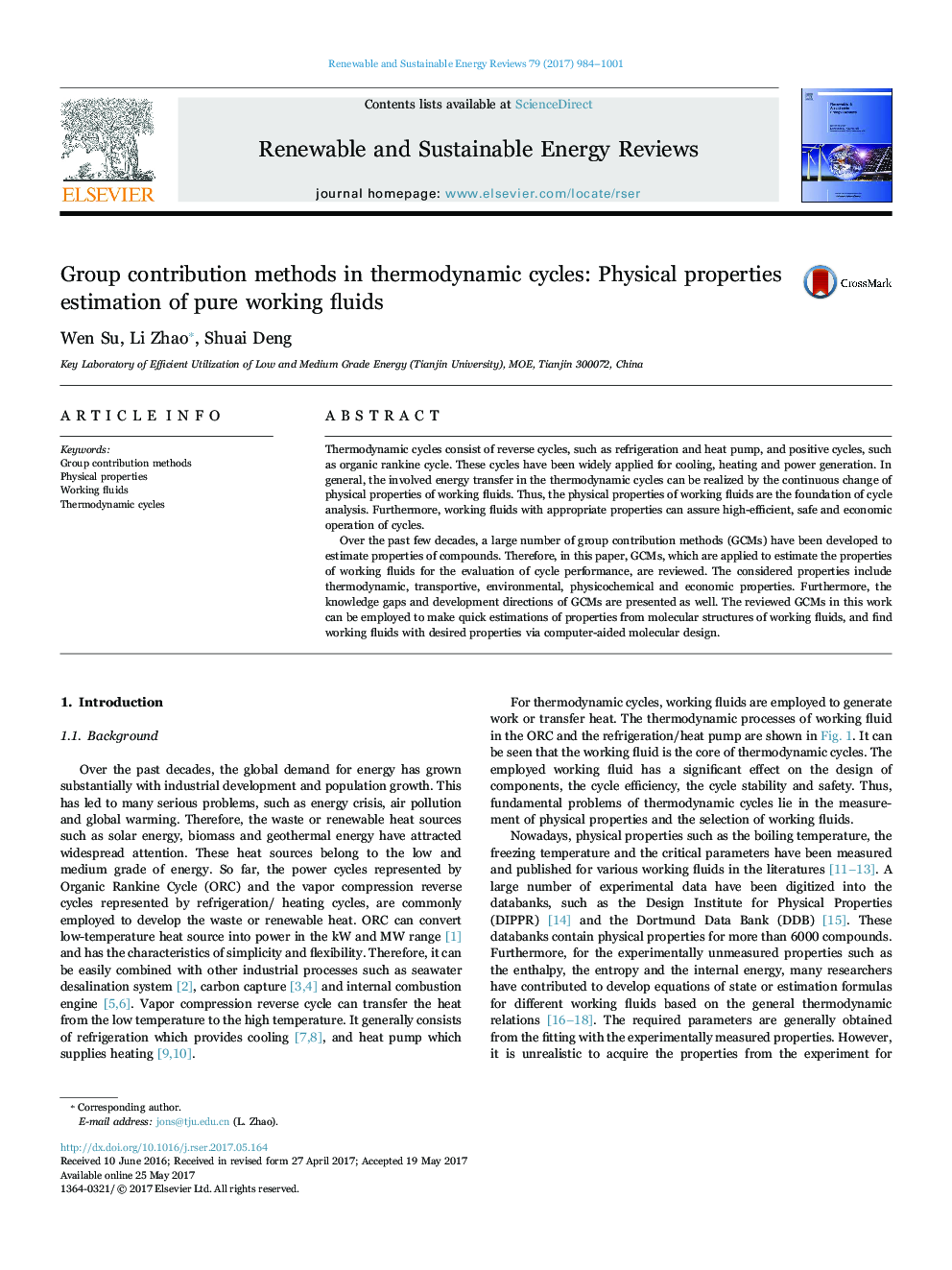| Article ID | Journal | Published Year | Pages | File Type |
|---|---|---|---|---|
| 5482618 | Renewable and Sustainable Energy Reviews | 2017 | 18 Pages |
Thermodynamic cycles consist of reverse cycles, such as refrigeration and heat pump, and positive cycles, such as organic rankine cycle. These cycles have been widely applied for cooling, heating and power generation. In general, the involved energy transfer in the thermodynamic cycles can be realized by the continuous change of physical properties of working fluids. Thus, the physical properties of working fluids are the foundation of cycle analysis. Furthermore, working fluids with appropriate properties can assure high-efficient, safe and economic operation of cycles.Over the past few decades, a large number of group contribution methods (GCMs) have been developed to estimate properties of compounds. Therefore, in this paper, GCMs, which are applied to estimate the properties of working fluids for the evaluation of cycle performance, are reviewed. The considered properties include thermodynamic, transportive, environmental, physicochemical and economic properties. Furthermore, the knowledge gaps and development directions of GCMs are presented as well. The reviewed GCMs in this work can be employed to make quick estimations of properties from molecular structures of working fluids, and find working fluids with desired properties via computer-aided molecular design.
